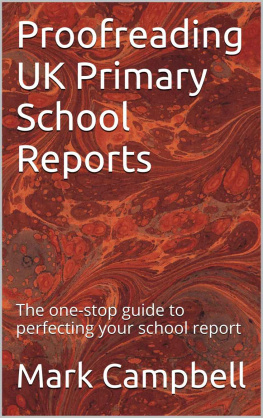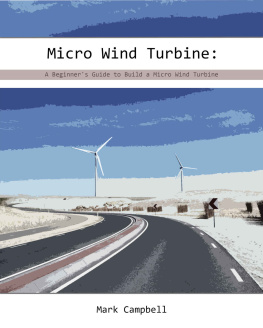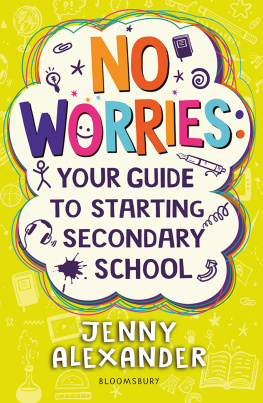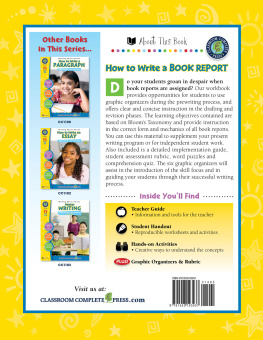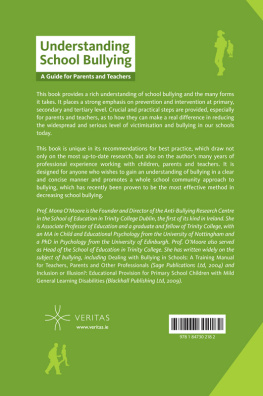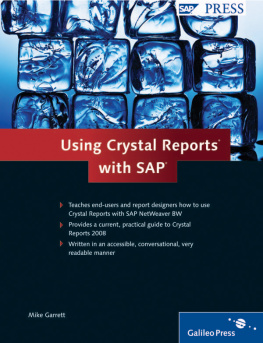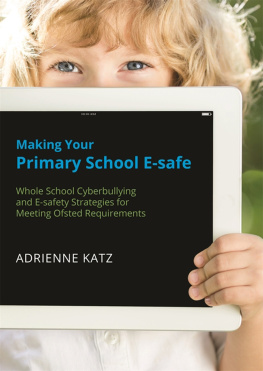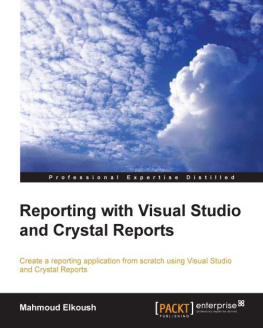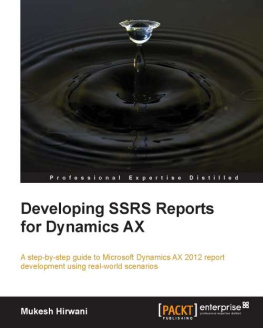Proofreading Primary School Reports
Mark Campbell
Introduction
Proofreading is not rocket science. Anyone can proofread. The main requirement of a proofreader is to read the text slowly and carefully. Read it aloudthat will help you decide whether it makes sense or not. You must be totally impartial to what you are reading. Remember, you are actively looking for mistakes. You will be disappointed if you dont find any! If it is your own report you are proofreading, it is likely that you are so familiar with it that you will overlook the mistakes, such as missing words or misspellings. Thats why it is always easier to read other peoples reports. But if you are reading your own, I would advise that you leave it at least a day before doing so. That way you will be slightly less familiar with it and more likely to uncover errors.
It is very important to keep in mind the ultimate goal of proofreading. In short, you are aiming for perfection! We all make mistakes when we write thingsfrom the headteacher downand your job is to root them out and correct them, by going back through whatever you (or someone else) has written and highlighting them. Consider any report you have written a First Draft. Nobody would send off a First Draft of anything, but until you have proofread it, thats what it is.
The problem when you proofread your own text is that if you do not know what is wrong with it, you will be unable to correct it. Very often, reading it aloud slowly and clearly can highlight any problems with the meaning. But this is not a foolproof method. It may not, for instance, help you correct spellings or punctuation errors. It should help with grammar errors and silly mistakes like putting the wrong childs name on a report, but thats only part of the story.
This short guide is intended for all primary school teacher. I would strongly advise that you read it all the way through before you write the first word of your first report. It will save you a great deal of time and effort if you dont need to correct many things when you proofread later. Report writing is hard work. Dont make it any harder on yourself.
Your report reflects the school that you teach in. If it is rushed, hard to understand and full of mistakes, parents will (consciously or otherwise) see it as representing the ethos of the school. Shoddy reports make the school look shoddy. Its as simple as that. And its not just parents who will see it that way. Any educational professional who gets his or her hands on a poorly written school report will not be happy, and that school will come under closer scrutiny.
One final tip: read this guide, write your report and then proofread it (preferably after at least 24 hours of writing it). Do not write any more reportsand under no circumstances cut and paste anything for other reportsuntil you are 100% certain there are no mistakes in your first one. The very last thing you want to do is go back and correct the same mistakes in thirty reports. Its soul-destroying.
Mark Campbell
APOSTROPHES
Misuse of the apostrophe is a particular bugbear of mine, as it is with most proofreaders. It appears that a vast number of intelligent people go into some kind of blind panic when faced when having to insert one of these humble little punctuation marks. They just dont know where to put it. So they put it anywhere, often into words that dont need it. And its not just greengrocers who are guiltyfrom companies to department stories, from government departments to teaching staff, everyone does it.
So here are the rules. Dont worry, there are only three.
Rule One: A word requires an apostrophe when it is a composite of two words joined together (a contraction). The apostrophe represents the missing letter, thus:
havent (have + not)
youre (you + are)
Im (I + am)
Most people are familiar with this use of the apostrophe and dont get it wrong. There are the odd exceptions to the rule (such as wont made from will and not, which jumbles the order of the letters) and some cases where more than one letter is missing (oclock from of the clock), but this rule is second nature to most people, and errors rarely happen.
Rule Two: An apostrophe is needed when it indicates ownership, or possession. If it is one person, or object, which is doing the owning, you put an apostrophe followed by an s after the person or object, thus:
Rorys ball (the ball belonging to Rory)
The cats toy (the toy belonging to the cat)
If more than one person or object is doing the owning, you pluralize that person or object, as normal, but follow it with the apostrophe , thus:
The boys shoes (the shoes belonging to the boys)
The teachers books (the books belonging to the teachers)
This is all very straightforward, isnt it? I hope so. Have a look at this sentence, and decide where the apostrophe (or apostrophes ) should go:
The childrens ball fell into the neighbours garden.
The first half is simple. The ball belonged to the children (plural) so it should be childrens. The second half is not so easy. Is it one neighbour or more? We have no idea. Unless we are given clues elsewhere in the narrative, well have to guess. Court cases have been dropped because of a missing apostrophe ! Here is the sentence correctly punctuated, but I have had to guess how many neighbours were involved:
The childrens ball fell into the neighbours garden.
Here is another example. Does it even need an apostrophe ?
Amy takes others feelings into account and is willing to help others.
Yes, most definitely. The feelings belong to the others, so you need an apostrophe as follows:
Amy takes others feelings into account and is willing to help others.
Note that the second others is a simple plural, which requires no apostrophe. This leads me neatly onto the final rule.
Rule Three: A plural never needs an apostrophe . These examples are all wrong:
Amy has trouble with dividing 5s, 6s and 7s.
Rory has been helped by his TAs.
Amy has learnt all about the 1900s.
Rory is always enthusiastic about Maths lessons.
Dont be fooled by initials or numbersthey dont need apostrophes . Here are the correct versions:
Amy has trouble with dividing 5s, 6s and 7s.
Rory has been helped by his TAs.
Amy has learnt all about the 1900s
Rory is always enthusiastic about Maths lessons.
CAPITALS
Strictly speaking, curriculum subjects should be capitalised , if only to make the sentence look more interesting. But if you are going to capitalise them, make sure you do it all the way through. Be consistent. And only do it for the names of the subjects. So this is right:
In Maths, Amy finds it difficult to solve maths problems.
But this is wrong:
In Geography, Amy has been learning about the Geography of Wales.
The one exception to this rule is when you are writing about languages, which are always considered as proper names. So this is technically correct:
In English, Rory struggles with his English verb endings.
However, it is also clumsy. There is no need to include the second English. We know perfectly well which language Rory is struggling with. Make it:
In English, Rory struggles with his verb endings.
When you are writing about ICT, the following words should be capitalised : Word documents, PowerPoint presentations (note the way PowerPoint is written, with two words joined together, and two capital Ps), Excel spreadsheets, Microsoft Works etc. If youre writing about Maths, capitalise Venn diagrams (Venn is a proper name.) And make it 2D or 3D rather than 2d or 3d.
Topics should be capitalised : Grouping and Changing Materials is correct. Grouping and changing materials is not. (Dont capitalise little words like the, and, in or of, unless it is the first word.) Similarly book titles need to be capitalised : Fantastic Mr Fox , The Hungry Caterpillar etc. In fact, anything with a proper name needs capitalising: Power Rangers, Batman, Spiderman etc.
Next page
